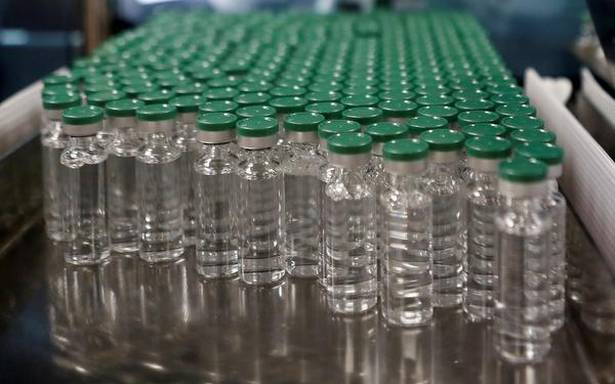WASHINGTON, Apr 10: Asserting that the effects of the COVID-19 pandemic will be felt for years, a joint ministerial committee of the International Monetary Fund and the World Bank has urged the two global financial bodies to ensure timely delivery of safe and effective vaccines across all countries.
“Timely delivery of safe and effective vaccines across all countries is critical to ending the pandemic, especially as new variants emerge. Developing countries need to strengthen their readiness for vaccination campaigns and develop coordinated strategies to reach vulnerable populations,” the Development Committee said in a communique after the Spring Meetings of the IMF and the World Bank here on Friday.
The panel noted that the COVID-19 pandemic has caused an unprecedented public health, economic and social crisis, threatening the lives and livelihoods of millions.
The economic shock is increasing poverty, worsening inequalities and reversing development gains. As the global economy begins a gradual recovery, uncertainty surrounds near- and medium-term prospects, it said.
According to Johns Hopkins University, the coronavirus has so far infected 134,545,099 people and claimed 2,914,590 lives globally.
“We call for sustained, differentiated, and targeted financial and technical support for an adequate policy response, strong coordination across bilateral and multilateral organisations, and further support to the private sector. We urge the World Bank Group (WBG) and the International Monetary Fund (IMF), in line with their respective mandates, to work closely together and with other partners to contain the impacts of the pandemic,” the communique said.
The committee called for redoubling the efforts to support manufacturing capacity for vaccines and the pandemic-related medical supplies in developing countries.
“The pandemic has triggered far-reaching consequences, and we must strengthen global preparedness for future pandemics, and at the same time make progress in building robust health systems with universal coverage,” it said.
As poorer countries face the crisis with increased resource constraints, limited fiscal space, and rising public debt levels, more of them, including small states, are vulnerable to financial stress, it said, noting that the rapid initial response under the Debt Service Suspension Initiative (DSSI) has provided much-needed liquidity for IDA countries.
Overseen by 173 shareholder nations, the International Development Association is the part of the World Bank that helps the world’s poorest countries by providing zero to low-interest loans and grants for programmes that boost economic growth.
“The effects of the COVID-19 crisis will be felt for years. Mobility restrictions and lockdowns have triggered job losses, especially for women, youth, and vulnerable groups, and can undermine social inclusion,” the committee said.
School closures have caused unprecedented disruption to education, especially for girls, damaging human capital, with long-term economic implications. Inflation and depleted incomes have raised household indebtedness and food insecurity, it said, urging the IMF and the World Bank to scale-up its work to address rising levels of food insecurity and to support countries in achieving Sustainable Development Goal 2 and nutrition for all.
Commending the WBG’s scale-up of climate finance over the past two years and its continuing role as the largest multilateral source of climate investments in developing countries, the committee welcomed the World Bank and IMF’s work to assess the impact of climate change on macroeconomic and financial stability.
Observing that a vibrant private sector is essential for countries to recover, create jobs and embrace economic transformation, it urged the WBG to continue its work to help crowd-in private capital and finance, and to support the private sector.
Earlier in his address to the Development Committee, World Bank Group President David Malpass said the world is developing a better line of sight forward, and “our collective efforts to poverty, climate change, and inequality will be the defining choices of our age”.
“It’s time to move urgently toward opportunities and solutions that achieve sustainable and broad-based economic growth without harming climate, degrading the environment, or leaving hundreds of millions of families in poverty,” he said.
Malpass welcomed the G20’s decision to extend the DSSI to end-2021.
“We are working closely with the IMF to support the implementation of the G20 Common Framework, as detailed in this joint paper. I welcome the clear statement in the G20’s communique that the need for debt treatment, and the restructuring envelope that is required, will be based on an IMF/World Bank Debt Sustainability Analysis as an input to the creditor committee deliberations,” he said.
To recover from COVID-19, there is a need for integrated, long-run strategies that emphasise green, resilient and inclusive development, Malpass said.
“This must be aligned with the need for policies that help countries increase literacy, reduce stunting and malnutrition, ensure clean water and energy access, and provide better healthcare,” he said.
“We must help countries improve their readiness for future pandemics. We need to help them accelerate the development and adoption of digital technologies. We need to work to improve and expand local supply chains and strengthen biodiversity and ecosystems,” Malpass said. (PTI)


